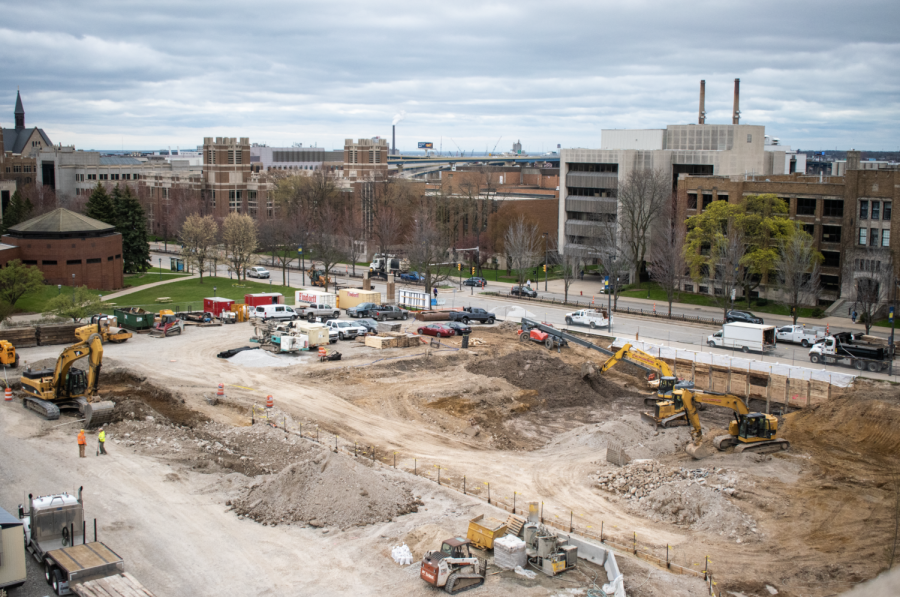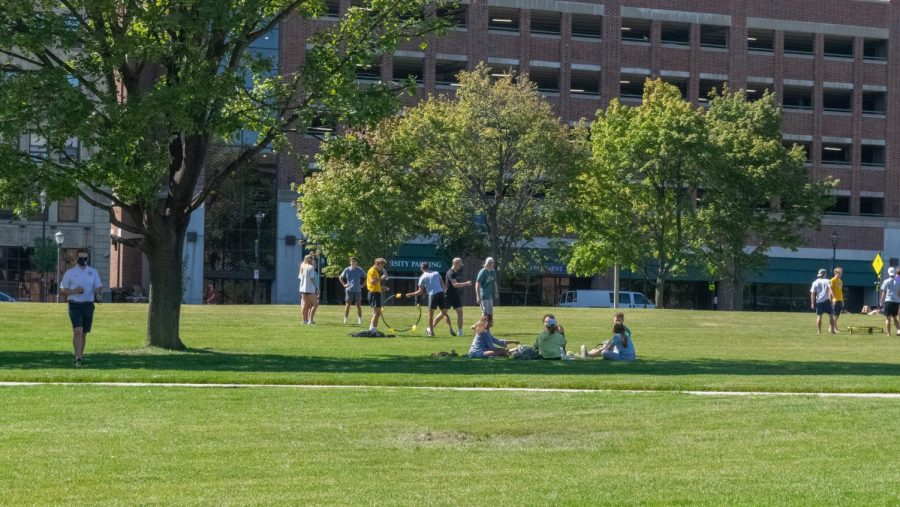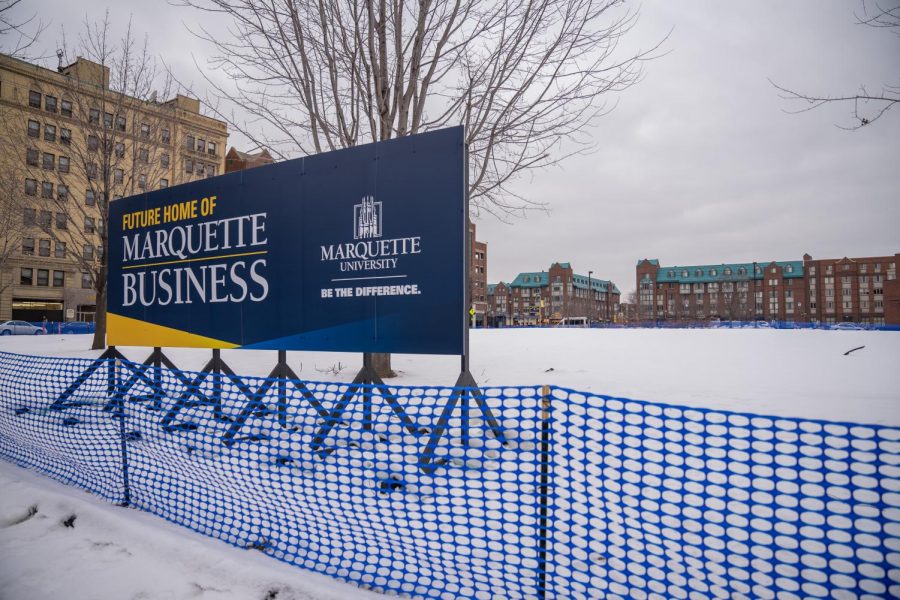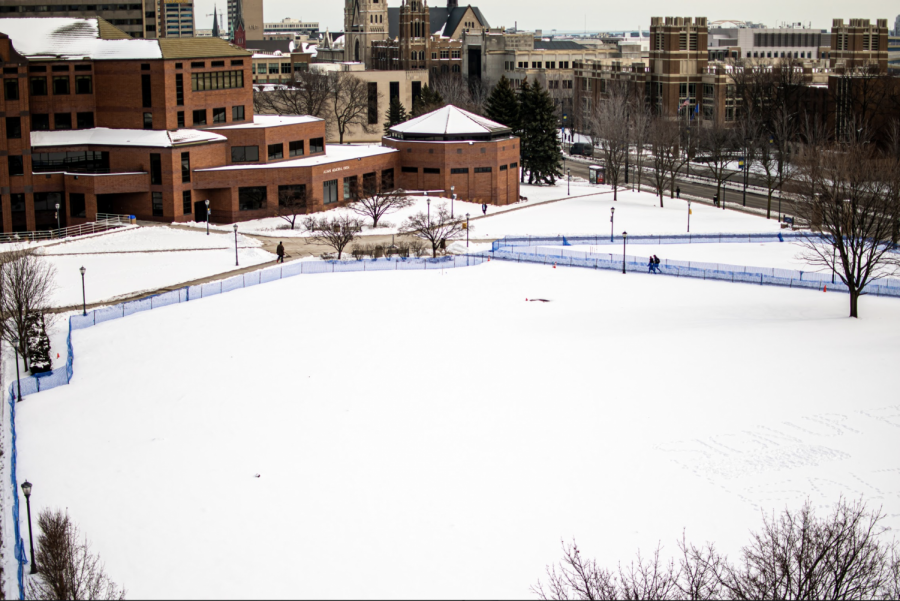At the beginning of the fall 2020 semester, there was big green space next to the Alumni Memorial Union. This was where McCormick Hall previously stood, which was tore down in October 2019. It was a green space where students could play, study, eat or hang out with their friends. This was a great place for students to spend time outside, especially during the COVID-19 pandemic where social distancing rules created restrictions for normal socialization.
Unfortunately, this green space was taken away after Marquette University began construction this March for the new College of Business Administration building. With the absence of this green space, Marquette should implement another green space on campus in order to prioritize the well-being of students.
Having more access and spending more time in green spaces can have positive impacts on students.
According to a 2019 review conducted by University of Chicago psychologist Marc Berman and his student Kathryn Schertz, green spaces located near schools can “promote cognitive development in children and green views near children’s homes promote self-control behaviors.”
Additionally, research from the University of Stirling showed that the impact of nature and green spaces can have a positive and uplifting feeling on people’s mental health, and people who spent more than two hours in nature had better mental health and lower stress levels than people who didn’t.
By having mores green spaces on campus, students have more opportunities to de-stress and reconnect with nature.
Studying outside has its benefits as well. According to a 2019 study conducted by the University of Arizona, 60% of students reported they had better problem solving skills after spending more time in nature, highlighting how fresh air can actually help students change their ways of thinking and retain material much faster.
Overall, Marquette students will strongly benefit socially and academically from spending more time outside in green spaces.
In the Raynor-Memorial Library, students must adhere to social distancing rules of one or two people per table to help combat spread of COVID-19. Unfortunately, study rooms are also temporarily closed, which may limit opportunities for social interactions.
However, if the university were to dedicate more areas on campus as green spaces, students could adhere to social distancing guidelines while also increasing opportunities for collaborative work and social interaction. First-year students and new students would especially benefit from spaces where interaction between students is made easier as meeting new people may be difficult for them this year since many of their classes may be online or not allow for normal interactions.
While Marquette can’t physically bring the original green space back near the Alumni Memorial Union, it can better utilize other spaces on campus and designate them as green spaces. For example, there are other open areas such as the Central Mall behind the Raynor-Memorial Library, the field across Mashuda Hall and the green space next to O’Donnell Hall. The university should designate these are green spaces for students to use and could even add more tables, benches or volleyball nets to encourage students to utilize these areas.
By having more green spaces, students can study in more engaging environments, interact with each other in a safe way and improve their overall mental health and well-being. Even after the COVID-19 pandemic ends, more designated green spaces will be essential for students. Marquette students deserve to have more areas on campus to socialize and connect back with nature. Especially considering Marquette is an urban campus, having more opportunities to be outside is important to create a balance in their environments.
This story was written by Krisha Patel. She can be reached at krisha.patel@marquette.edu












